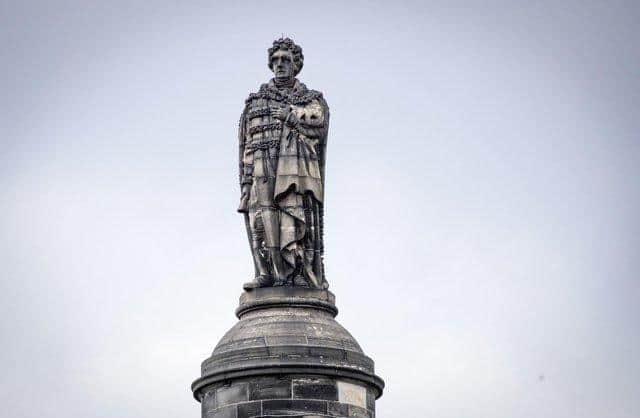Henry Dundas not only delayed abolition of slave trade, he was a despot who ruled Scotland like a king – Kenny MacAskill MP


Now I’m fully supportive of the change, ensuring his role in slavery’s laid bare. It’s important that Scotland’s role is accounted for. Hence changes are welcome.
For long it’s simply been a man high up on a plinth, with few able to say who it was. But why’s there no mention of his role in Scottish society or, more importantly, his repression of his own people. For Henry Dundas was no saint though, to be fair, he probably didn’t view the working people as his kinfolk.
Advertisement
Hide AdAdvertisement
Hide AdHe represented the landed elite and he presided over Scotland as a despot, not a revered leader. It was no accident that he found himself dubbed “King Harry the Ninth” at a time when the franchise was had by 4,000 people and half were thought to be fraudulent.
He was Lord Advocate between 1775 and 1783, when that post was the power in the land. Later serving as Home Secretary and War and Admiralty Secretary, he passed the Lord Advocate role to his nephew, continuing the family business. His control was close to absolute, at one stage 43 out of the 45 MPs from Scotland were under his control.
It was under his tutelage that Thomas Muir and others were transported to Botany Bay for seeking the universal franchise and army garrisons were built across central Scotland. The latter were ostensibly to allow for increased recruitment as war with France waged. But, as private papers disclosed, it was also because of fears of insurrection at home.
Dundas was far from popular except amongst the ruling elite. Effigies of him were burned as the French Revolution inspired hope amongst the “sans culottes” he so feared and despised. Indeed he was at one stage unable to visit Perth, as his safety couldn’t be assured, even with a military escort.
Why can’t the history of the Scottish people – not just the elite – be told? Transportation was nowhere near as horrific as chattel slavery. But our people suffered under Dundas and they didn’t endorse him. That story should also be told.
Kenny MacAskill is Alba Party MP for East Lothian
A message from the Editor:
Thank you for reading this article. We're more reliant on your support than ever as the shift in consumer habits brought about by coronavirus impacts our advertisers.
If you haven't already, please consider supporting our trusted, fact-checked journalism by taking out a digital subscription.
Comments
Want to join the conversation? Please or to comment on this article.
